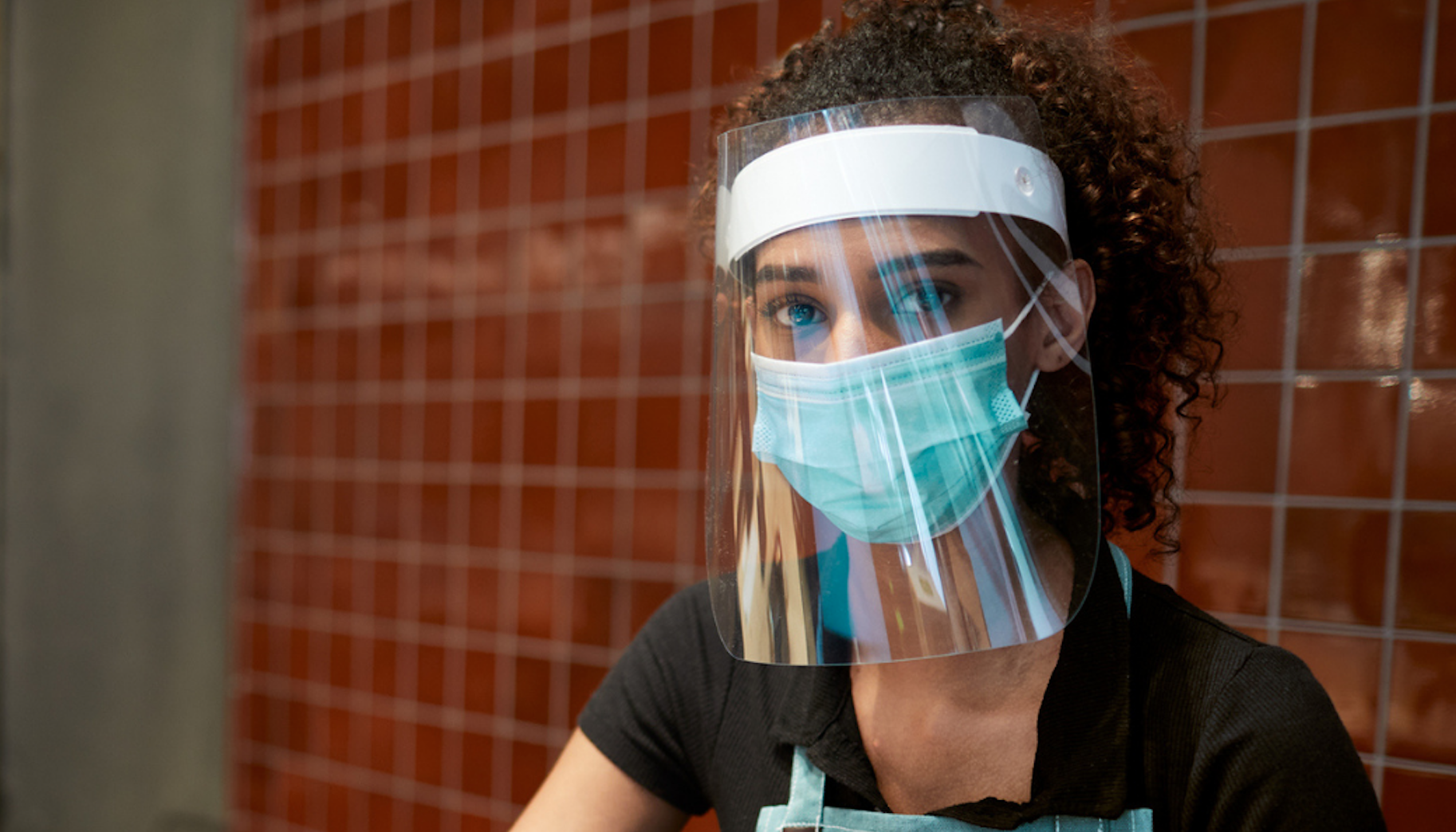This week, IWPR hosted a webinar focused on the needs and experiences of young women in the pandemic recession and recovery. The event was part of the launch of a new brief, Unequal Present, Unfair Future: Young Black, Latina, and LGBTQ Women Face Greater Economic Challenges during the Pandemic.
The concentration of young women in service-oriented industries meant that their COVID-related job losses were higher than any other gender-age group—young women aged 16 to 24 lost more than 3.3 million jobs between February and April 2020. Many of those who were able to remain employed were classified as “essential workers,” facing elevated health risks often without access to protections such as paid sick leave.
IWPR’s new brief shows that young women of color and young LGBTQ women are bearing the worst of these pandemic-related economic challenges. These young women are more likely to have experienced career setbacks during the pandemic than other young women: 29.3 percent of Black young women, 27.1 percent of young Latinas, and 35.7 percent of LGBTQ young women took a job they didn’t want just to pay the bills, took an unpaid or unwanted job just to gain work experience, gave up looking for a new job, or quit their job due to an unsafe work environment, compared to 24.3 percent of all young women. Young Black women and young LGBTQ women were also more likely than others to worry about paying their bills and were more likely to have relied on financial assistance from other people.
In light of these challenges, the vast majority (about 80 percent) of young women—across racial/ethnic groups and gender and sexual identities—support student loan forgiveness, raising the federal minimum wage, and guaranteed child care assistance.
Expert panelists from the webinar agree, citing basic needs insecurity, cost of tuition, and lack of child care access as major obstacles to accessing good jobs and job training programs. “One of the main concerns is child care,” explained Jackie McGurn, a Carpenter with Local 327 and Chair of Boston Sisters in the Brotherhood, “That’s why advocates started Care that Works. Getting early child care was a big problem for a lot of : ‘What am I going to do with my children? They’re young—how do I get started with this career?’” The program had to pause due to COVID, but it has now resumed child care placements.
Lily Rocha, Midwest Regional Director of Young Invincibles, described how leveraging COVID relief dollars enabled her organization to help young jobseekers with transportation, child care, and housing. “Providing support for basic needs is a critical part of workforce development,” said Rocha, “People tend to think that once young women get jobs, they’re good. But those young women are still struggling to get to work every day, they’re still struggling to get child care, they’re still trying to figure out where they’re going to live long term.”
The panelists also discussed how job training and career development programs contribute to young women’s economic security in the COVID pandemic and recovery. Felida Villarreal, Deputy Executive Director of the Valley Initiative for Development and Advancement (VIDA), called for greater investment in human capital. “There is a lot of opportunity for retraining and upskilling, even more so during the pandemic where we saw a significant transition to an online and virtual environment, both in the workforce and in the academic setting,” Villarreal said. “There are a lot of new training and career pathways available in IT and computer science-related fields. Policies like universal pre-K and a cap on child care costs target the obstacles that young women entering those fields face going forward.”
“Cost of tuition and family care needs are obstacles,” added Amantha Hons, a member of the Young Invincibles Texas Youth Apprenticeship Council, “Young women face issues finding job training programs and knowing what’s available to them. There are gender stereotypes and biases, especially in the trades. Most young women don’t realize apprenticeships and work in nontraditional occupations can be a career path for them.”
“I hope we can continue to inspire young women to pursue a career they are passionate about, to have a positive impact in their own lives and in their communities, and to have an expanded influence in policymaking, being the voice for young women as we continue the fight,” said Villarreal in closing. Shengwei Sun, Senior Research Associate at IWPR and author of the report added, “In order for every young woman to achieve that, we need support from every level— from policy, from employers, [from] job training programs—providing more resources for advocacy and empowerment.”
Read the full brief: https://iwpr.org/wp-content/uploads/2021/12/Unequal-Present-Unfair-Future_FINAL.pdf.
Watch the webinar: https://www.youtube.com/watch?v=q861Ks3jljc&t=13s&ab_channel=InstituteforWomen%27sPolicyResearch.


